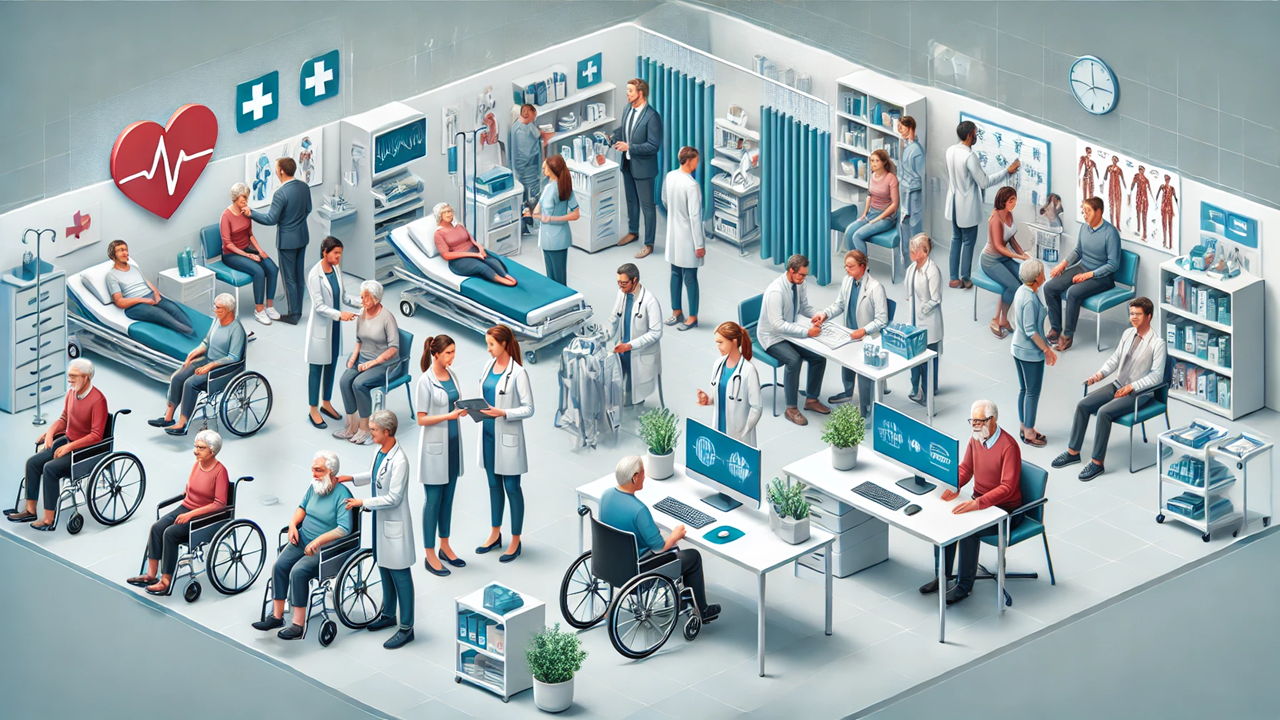Bridging the Gender Gap in Health: A New Pathway Under Universal Health Coverage
The World Bank's report, "Achieving Gender Equity in Health: Key Areas of Focus Under Universal Health Coverage," presents a strategic roadmap to bridge gender gaps in health care. By focusing on comprehensive sexual and reproductive health services, healthcare coverage for older women, promoting gender equality in health leadership, addressing mental health disparities, and ensuring gender equity in pandemic preparedness, the report outlines actionable steps to achieve a more inclusive and equitable health system.

In a groundbreaking report titled "Achieving Gender Equity in Health: Key Areas of Focus Under Universal Health Coverage," the World Bank lays out a comprehensive framework to address gender disparities in health care. The report emphasizes the need for a holistic and systematic approach to achieve gender equity through Universal Health Coverage (UHC). Here are the key takeaways from the report, detailing five priority areas for investment and intervention.
Comprehensive Sexual and Reproductive Health Services
One of the cornerstone strategies outlined in the World Bank report is providing comprehensive sexual, reproductive, adolescent, and maternal health services. Access to these services is crucial for empowering women, girls, and other gender identities. The report argues that broader societal benefits can be achieved by ensuring that individuals have the resources and support needed for family planning, maternal health, and reproductive health.
"Family planning and reproductive health are not just women's issues; they are crucial for the health and development of entire communities," said Sameera Altuwaijri, one of the report's authors. The integration of these services into UHC aims to reduce barriers to access, thereby enabling women and other gender identities to lead healthier, more empowered lives.
Healthcare Coverage for Older Women
The report highlights the need to address the unique healthcare challenges faced by older women. As populations age, the health needs of older adults, particularly women, require special attention. Older women often face barriers in accessing and affording health care, including services for noncommunicable diseases, menopause care, and osteoporosis.
"Although women typically live longer than men, they often encounter more financial difficulties and have limited access to health services as they grow older," the report highlights. To combat these disparities, the World Bank advocates for integrating long-term and community-based care models into UHC to provide holistic support for older adults.
Promoting Gender Equality in Health Leadership
Another critical area of focus is the promotion of gender equality in health leadership. Despite women constituting a significant portion of the global health workforce, they remain underrepresented in leadership roles. This disparity impacts not only the management and delivery of health services but also the development of policies and regulations.
"Giving women a voice in decision-making roles can result in more inclusive and effective health policies," the report states. To foster leadership among women, the World Bank suggests mentorship programs, equal pay initiatives, and opportunities for women to participate in decision-making bodies. These measures aim to dismantle the barriers that prevent women from advancing in their careers and contributing to healthcare leadership.
Addressing Mental Health Disparities
The integration of mental health services into UHC is another priority highlighted in the report. Mental health issues affect both men and women, but the prevalence and impact can differ significantly based on gender. Women, in particular, are more likely to suffer from major depressive disorders and the psychological effects of gender-based violence.
"Mental health is an integral part of overall health, and addressing gender disparities in mental health care is essential," the report emphasizes. By training health care providers and utilizing social and behavior change communication (SBCC) strategies, the report aims to reduce stigma and improve access to mental health services for all genders.
Gender Equity in Pandemic Preparedness
The COVID-19 pandemic has underscored the importance of resilient health systems that can respond to emergencies without exacerbating gender disparities. The report calls for gender-responsive approaches in pandemic preparedness and emergency response. This includes ensuring the continuity of essential health services, providing adequate training and equipment for frontline workers, and involving women in leadership roles during health crises.
"Pandemics hit women harder because they are often on the front lines as workers and also bear the brunt of caregiving responsibilities," the report notes. By addressing these challenges, the World Bank aims to build more resilient health systems that can better protect and support women during emergencies.
- FIRST PUBLISHED IN:
- Devdiscourse










